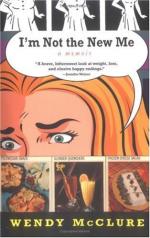McCLURE’S MAGAZINE.
Vol. VI. March, 1896. No. 4.
ABRAHAM LINCOLN.
By Ida M. Tarbell.
Lincoln’s election to the tenth assembly.—Admission to the bar.—Removal to Springfield.
The first twenty-six years of Abraham Lincoln’s life have been traced in the preceding chapters. We have seen him struggling to escape from the lot of a common farm laborer, to which he seemed to be born; becoming a flatboatman, a grocery clerk, a store-keeper, a postmaster, and finally a surveyor. We have traced his efforts to rise above the intellectual apathy and the indifference to culture which characterized the people among whom he was reared, by studying with eagerness every subject on which he could find books,—biography, state history, mathematics, grammar, surveying, and finally law. We have followed his growth in ambition and in popularity from the day when, on a keg in an Indiana grocery, he debated the contents of the Louisville “Journal” with a company of admiring elders, to the time when, purely because he was liked, he was elected to the State Assembly of Illinois by the people of Sangamon County. His joys and sorrows have been reviewed from his childhood in Kentucky to the day of the death of the woman he loved and had hoped to make his wife. These twenty-six years form the first period of Lincoln’s life. It was a period of makeshifts and experiments, ending in a tragic sorrow; but at its close he had definite aims, and preparation and experience enough to convince him that he dared follow them. Law and politics were the fields he had chosen, and in the first year of the second period of his life, 1836, he entered them definitely.
The Ninth General Assembly of Illinois, in which Lincoln had done his preparatory work as a legislator, was dissolved, and in June, 1836, he announced himself as a candidate for the Tenth Assembly. A few days later the “Sangamon Journal” published his simple platform:
New Salem, June
13, 1836.
To the editor
of the ‘journal’:
“In your paper of last Saturday I see a communication over the signature of ‘Many Voters,’ in which the candidates who are announced in the ‘Journal’ are called upon to ’show their hands.’ Agreed. Here’s mine:
I go for all sharing the privileges of the government who assist in bearing its burdens. Consequently, I go for admitting all whites to the right of suffrage who pay taxes or bear arms (by no means excluding females).
If elected, I shall consider
the whole people of Sangamon my
constituents, as well those
that oppose as those that support
me.




